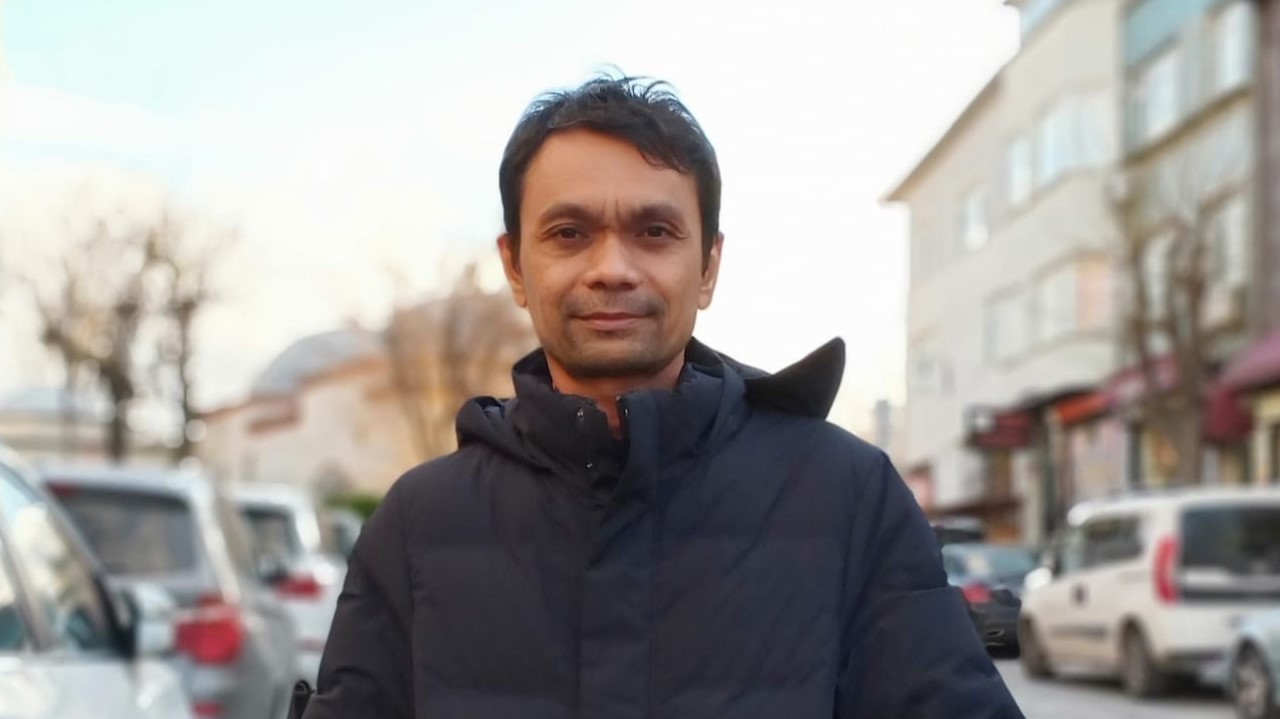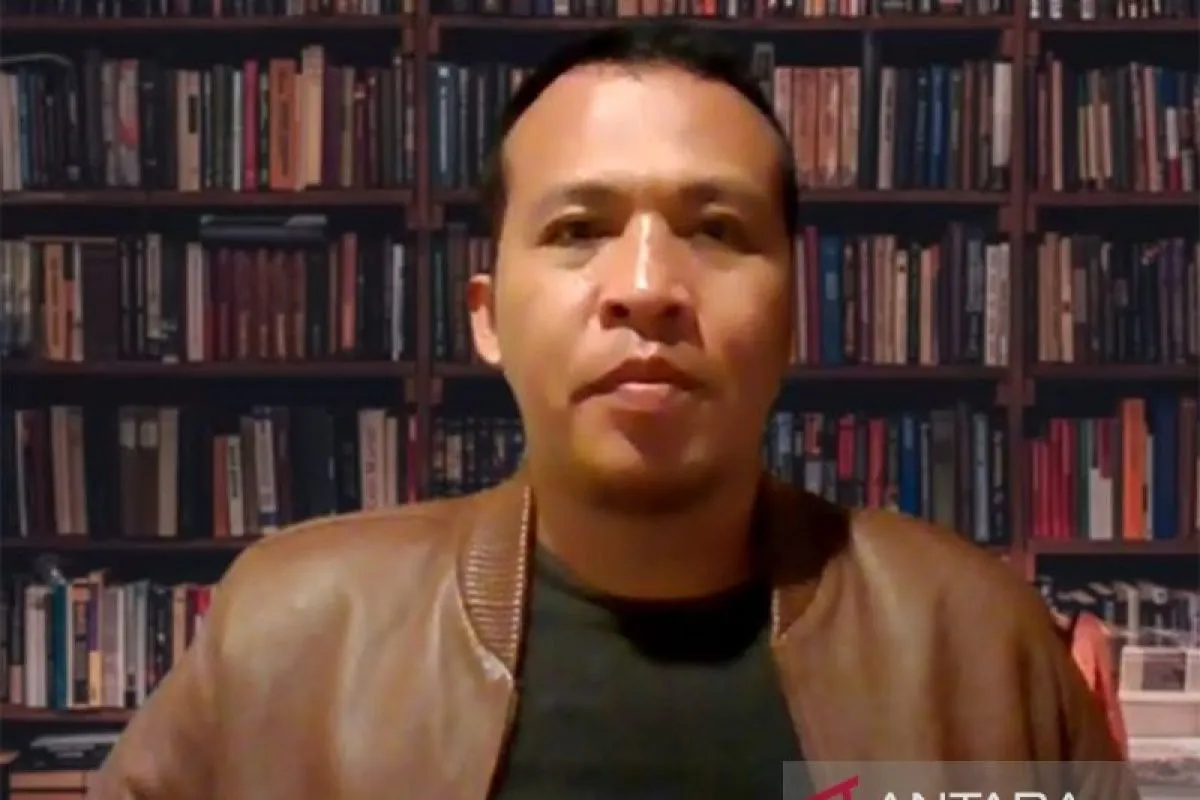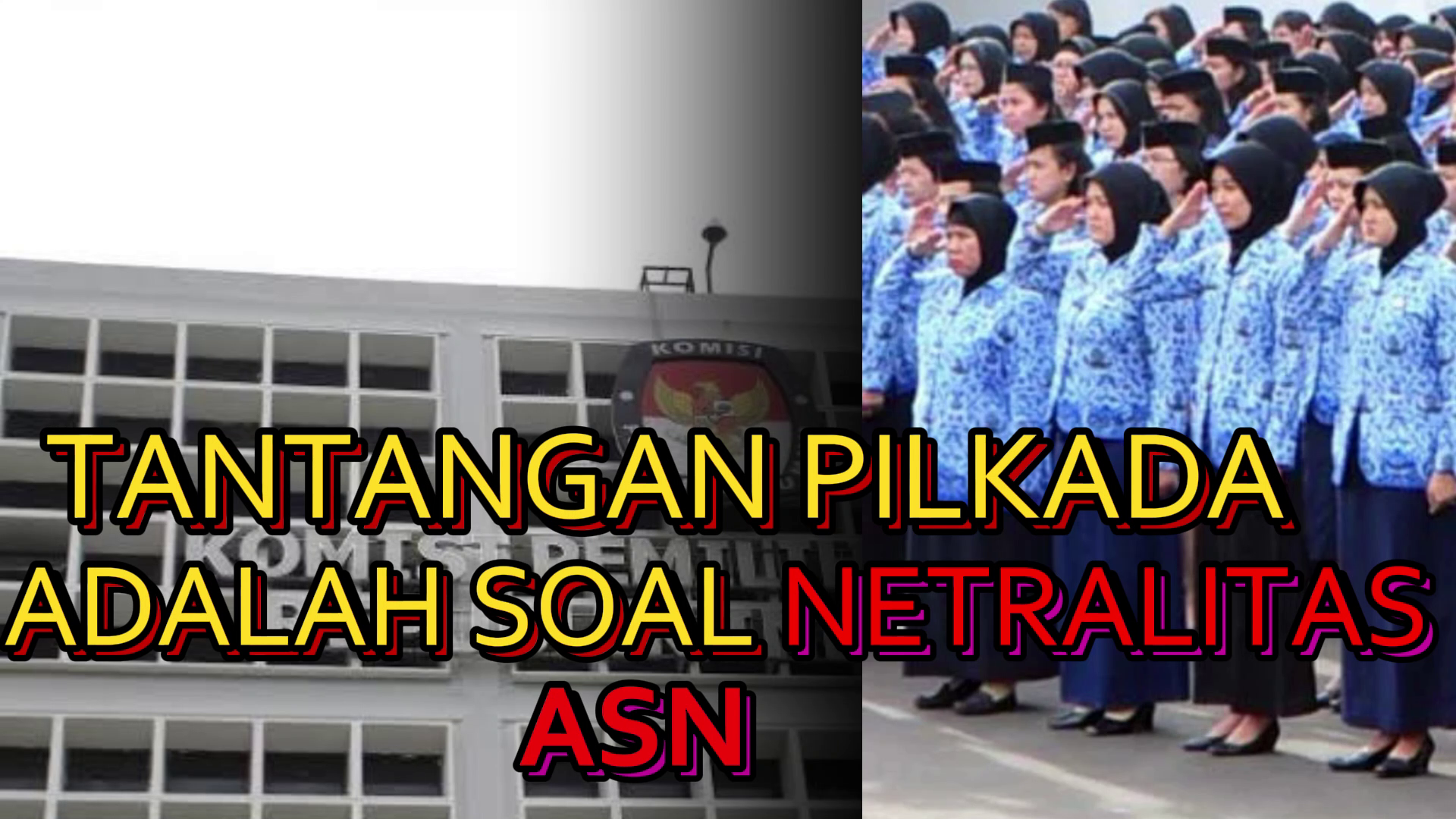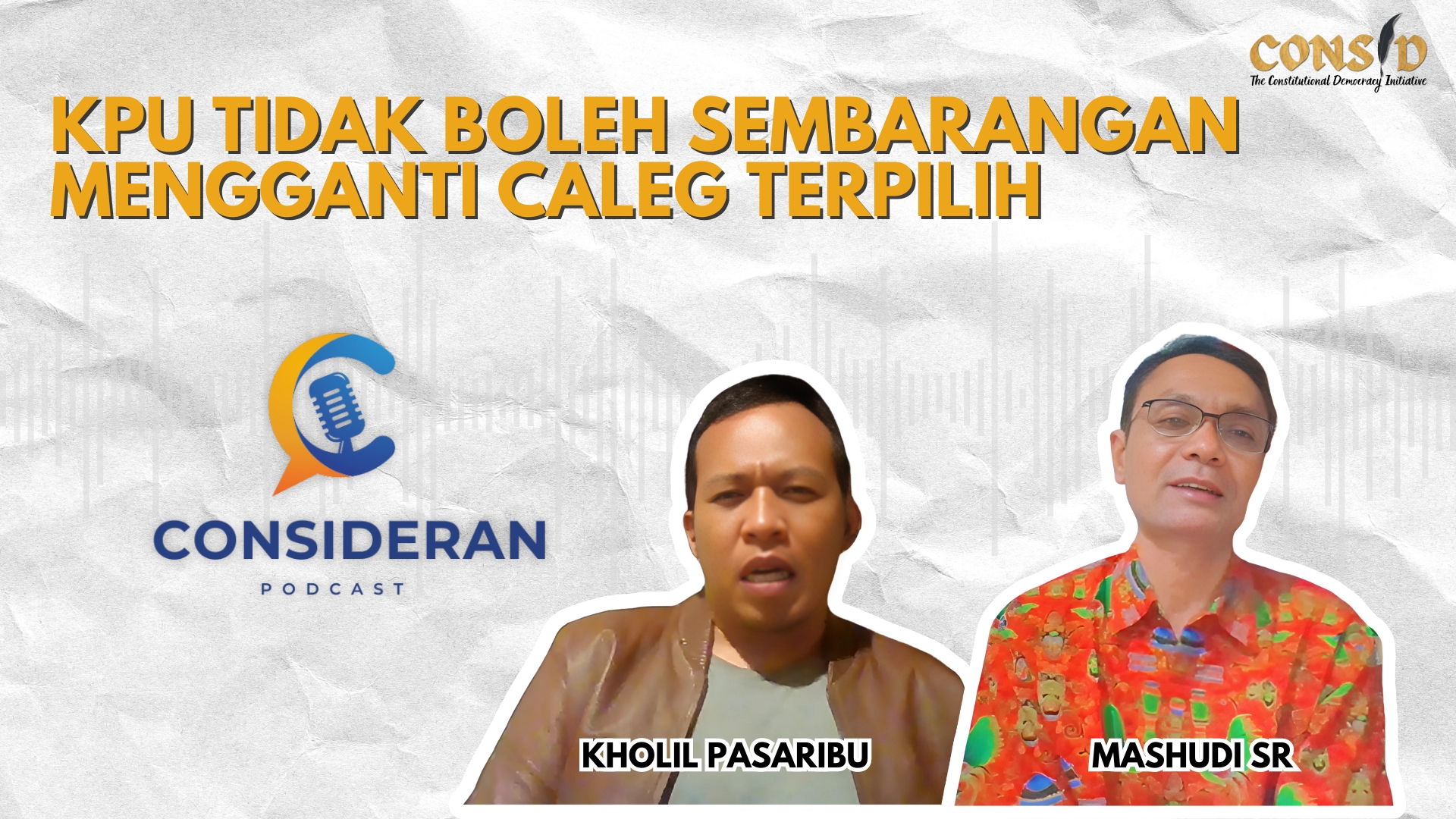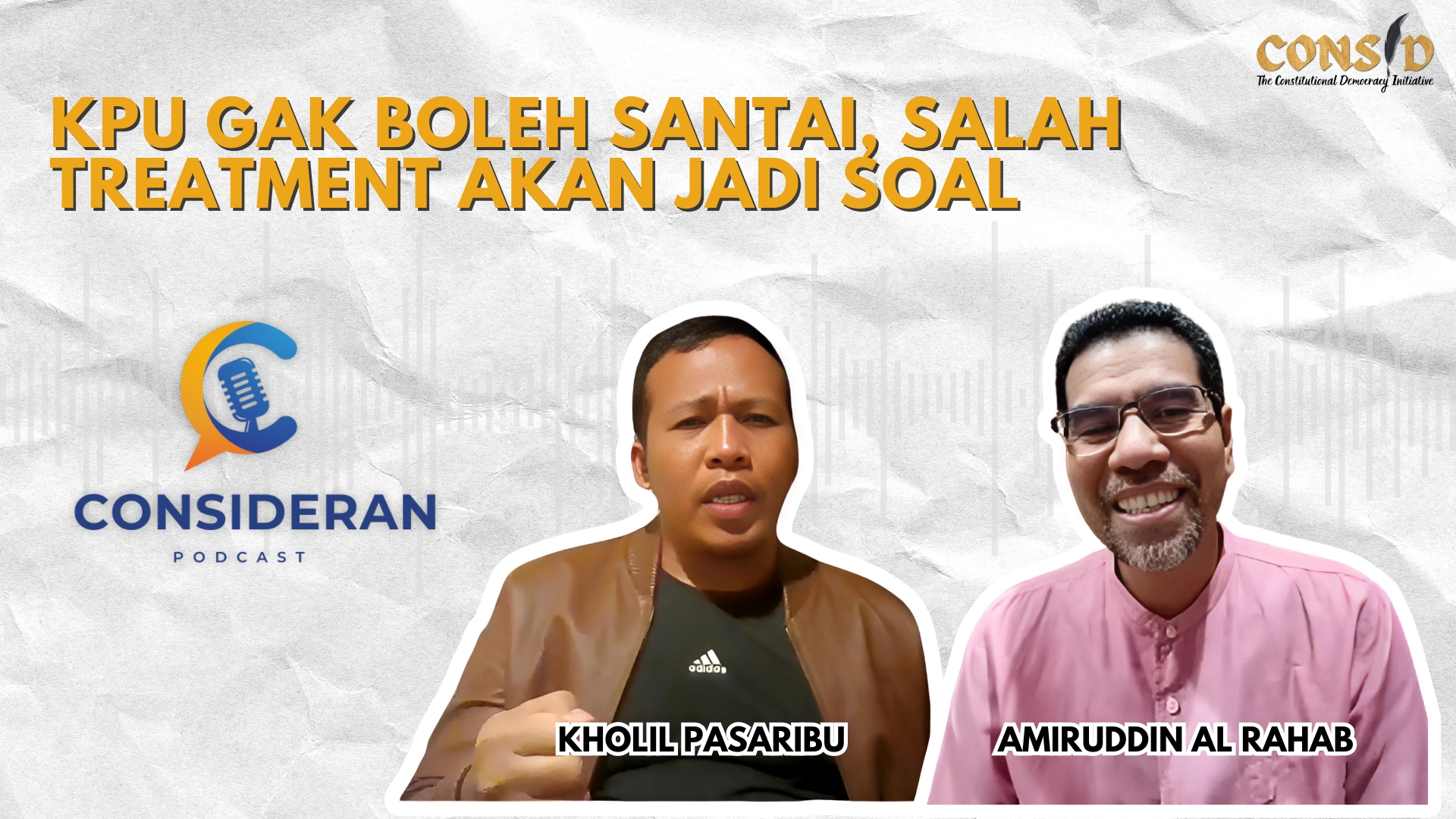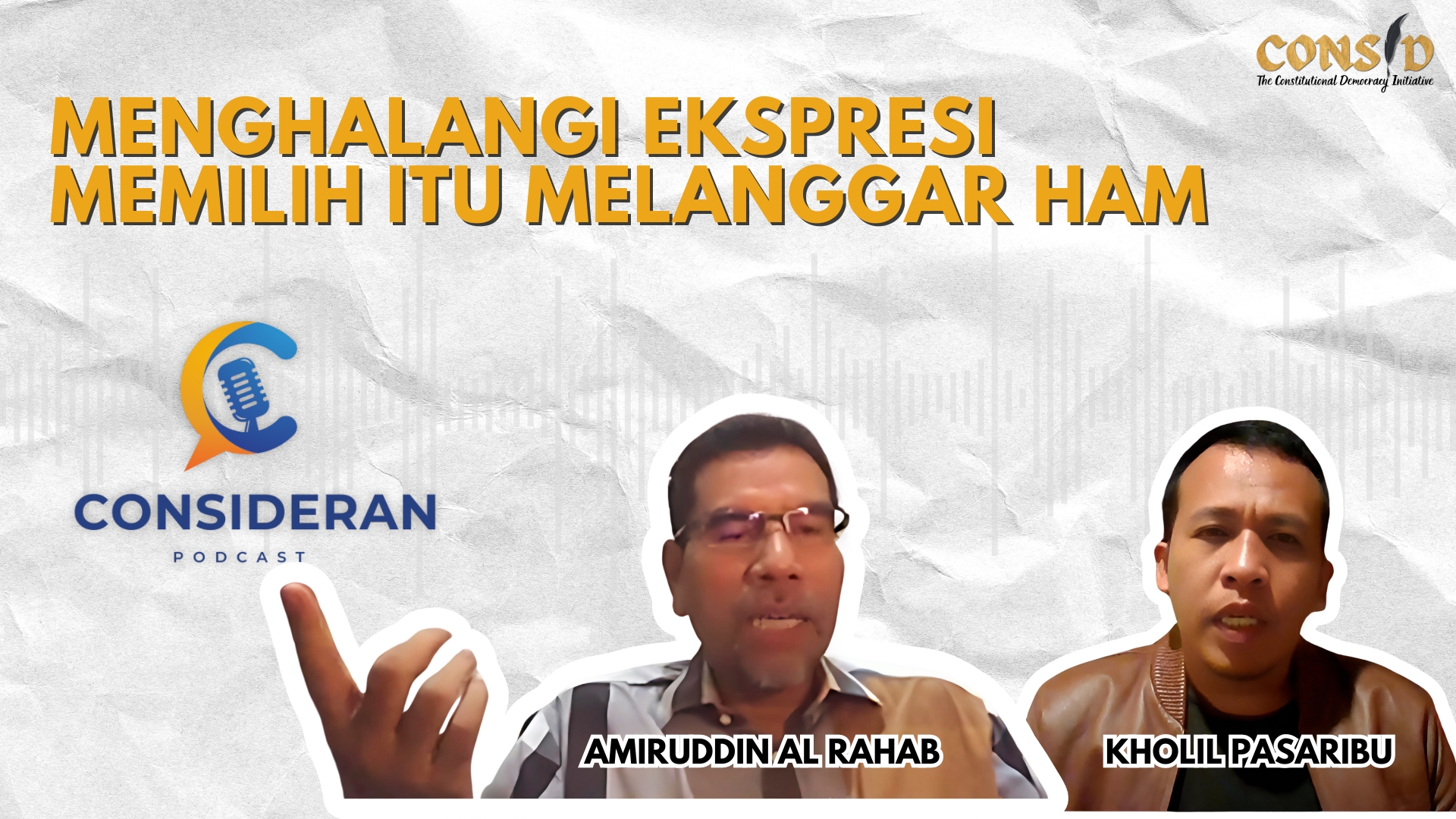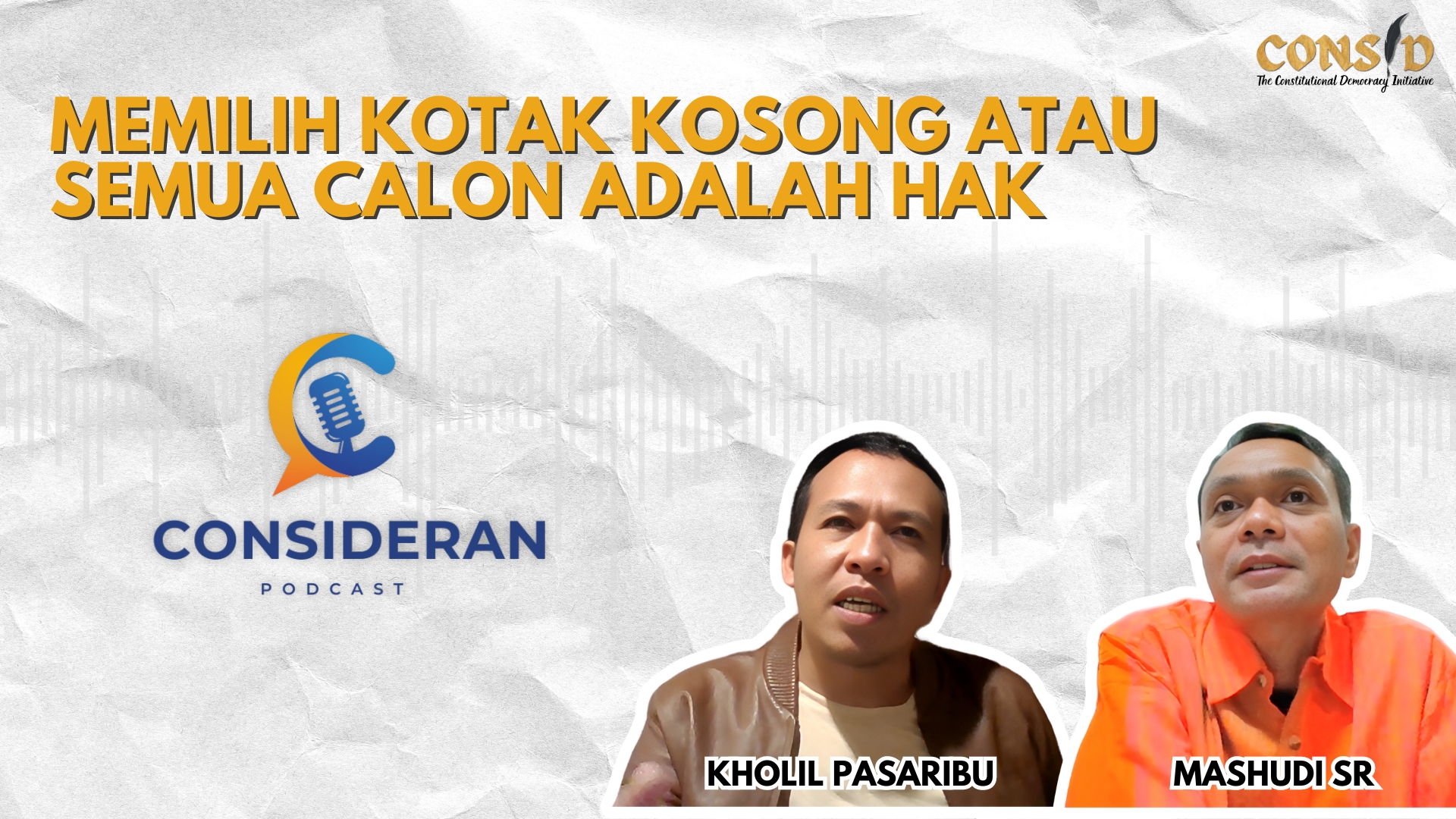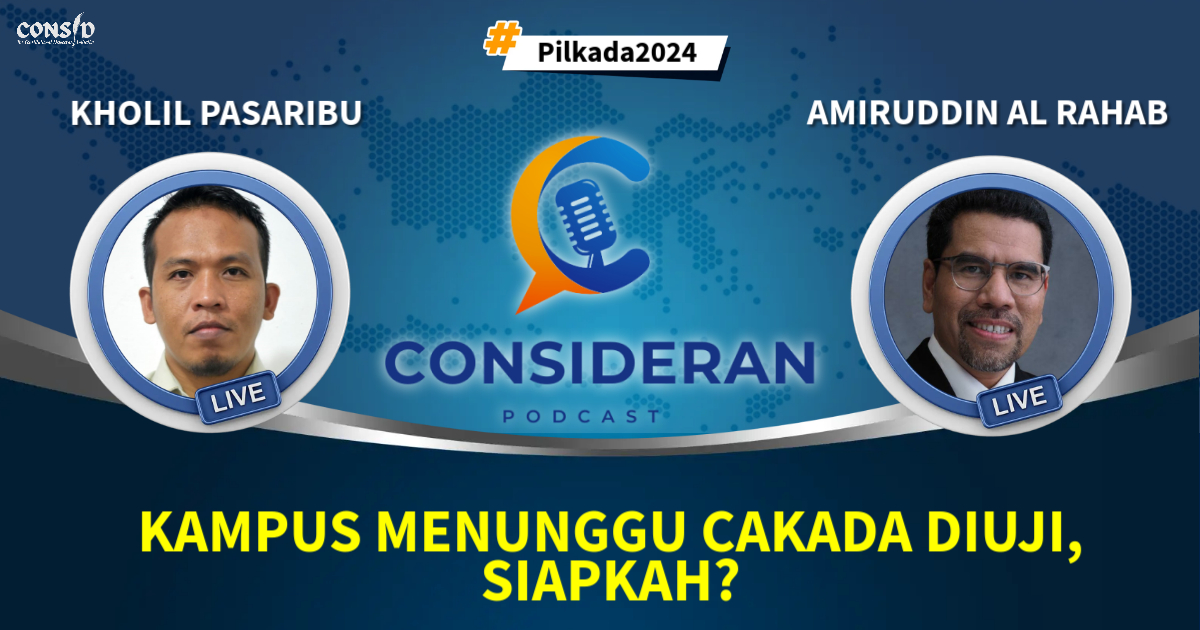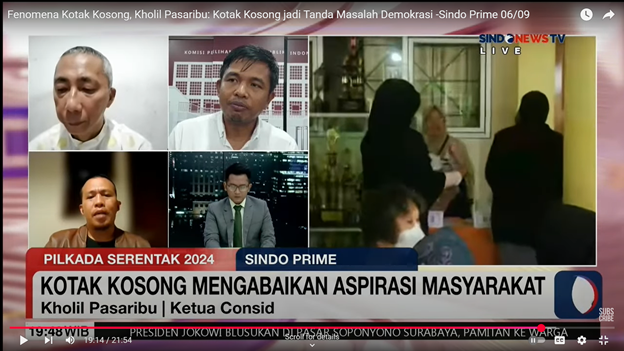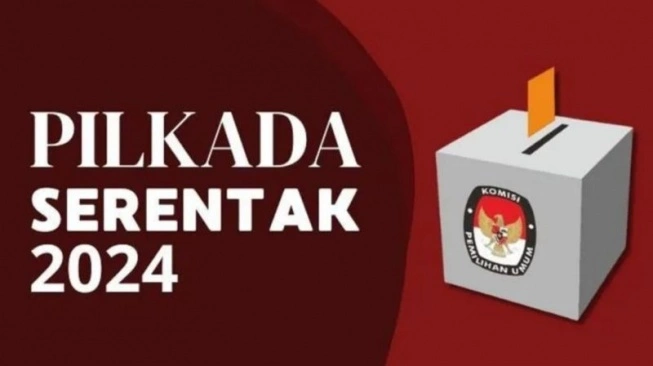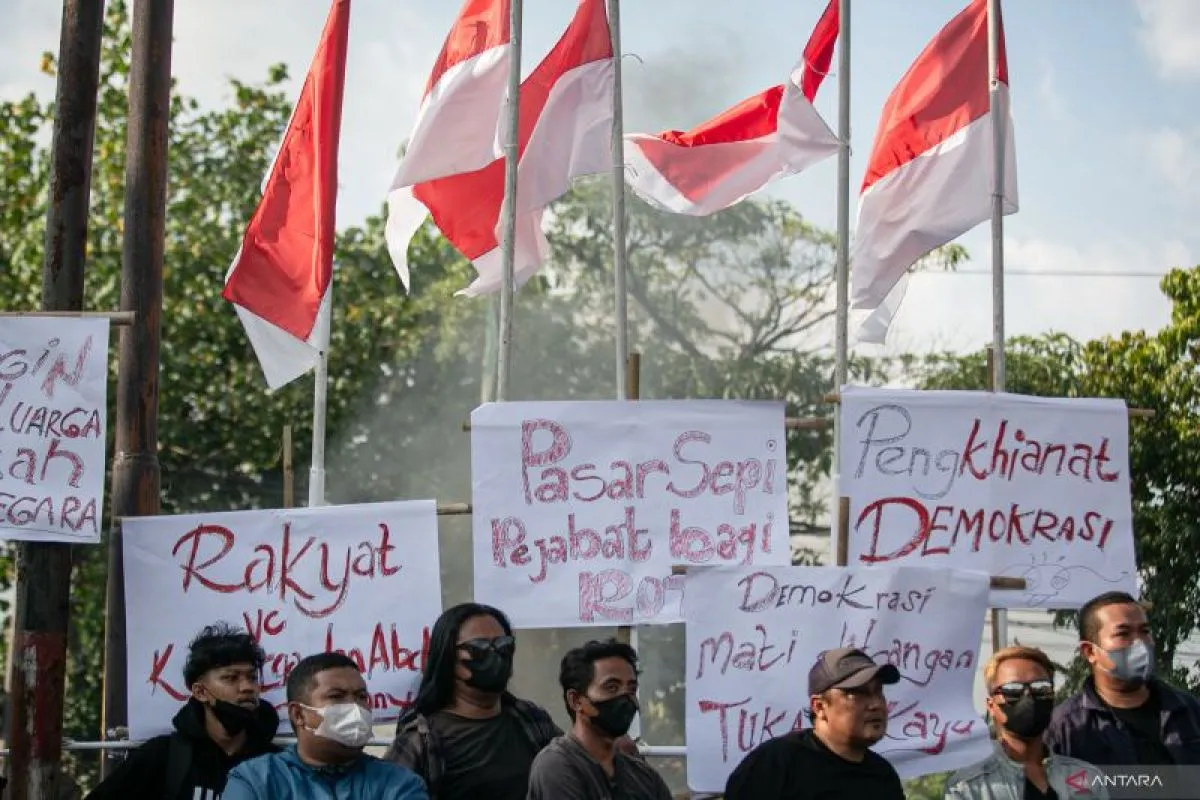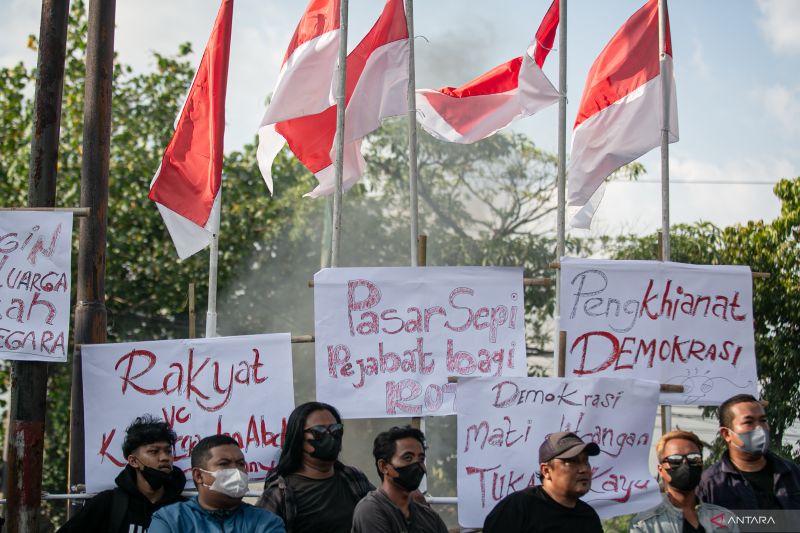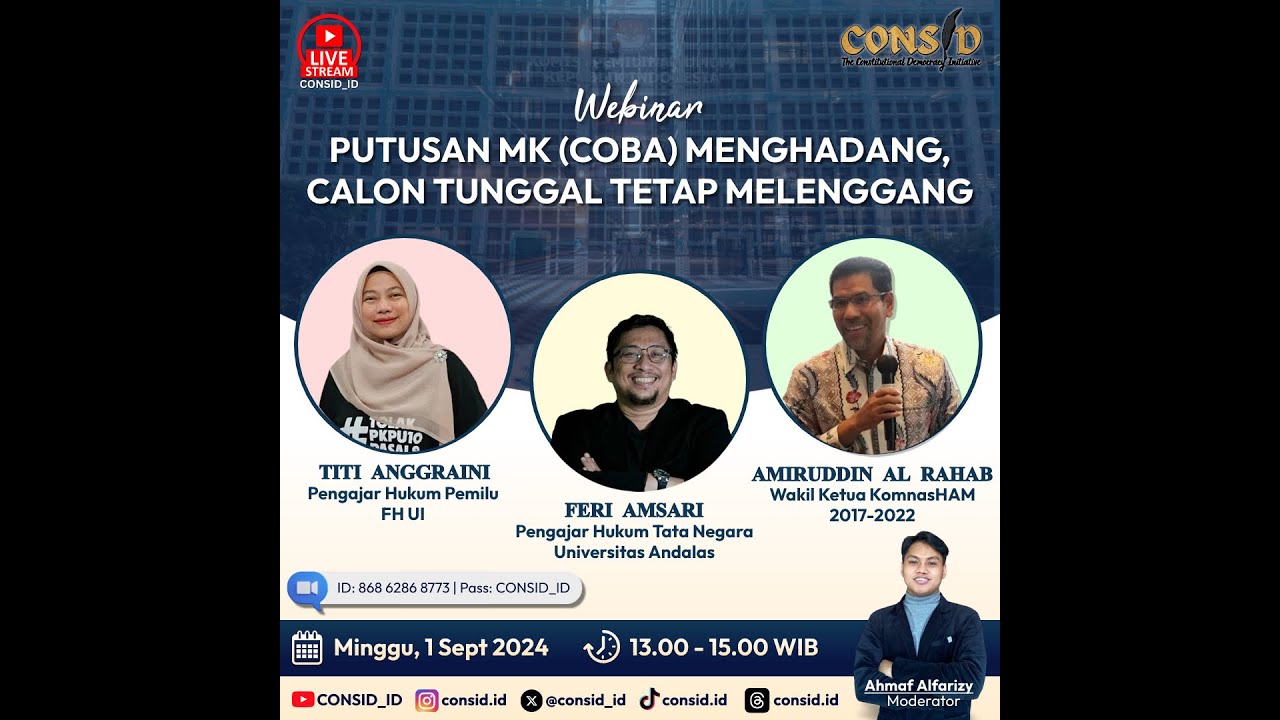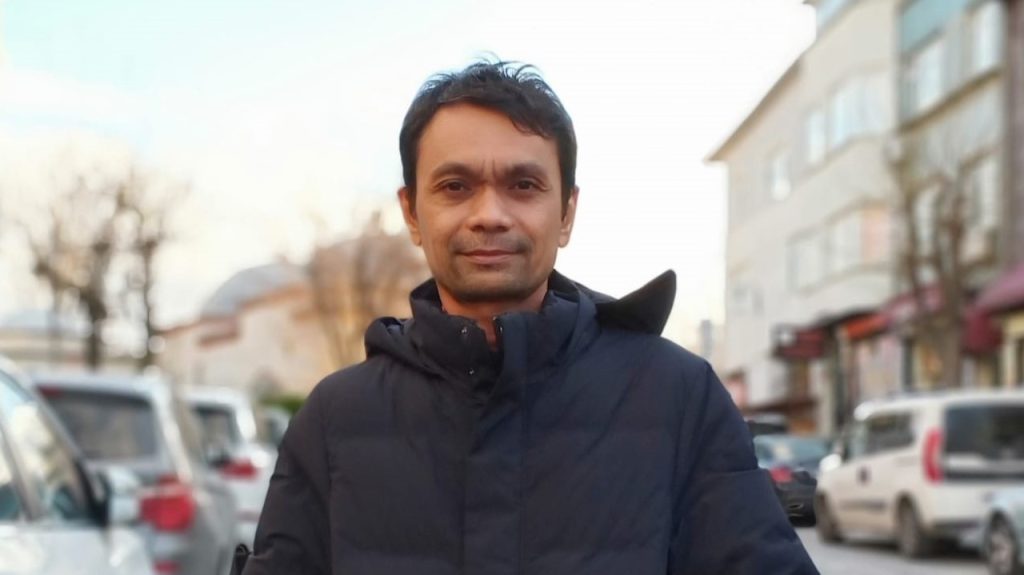
Mashudi SR
Senior Researcher, CONSID
"It would be a great loss if young people's political choices are dictated by candidates through sweet talk and political gimmicks."
It cannot be denied that in the 2024 elections—both legislative and presidential—candidates are competing to win the support of young voters. Out of more than 204 million names in the final voter list, 56.49% are young voters. This is a huge and attractive vote share for politicians chasing seats of power.
Logically, such a large number should come with strong bargaining power. Using simple logic: the bigger the group, the stronger its political influence. Based on this, young voters hold a strategic position and can be key to deciding the winners of the election.
This is the reason why election participants, especially in the presidential race, are doing their best to gain young voters’ support. Young people, who are familiar with digital technology, are being targeted through various social media platforms to win their sympathy and deliver campaign messages. We can see this from the constant appearances of candidates on social media, along with the tweets of buzzers who promote their favourites while attacking the opponents.
If we look closely, the efforts to influence young people's political choices have stopped caring about substance or truth. There is hardly any meaningful political education. What we see instead is a game of “who gets what and by what means.” Politics in practice has been reduced to its lowest point. The political scientist Harold D. Lasswell was right when he said that politics is about who gets what, when, and how.
Almost no one talks about the other side of elections: the process of educating and maturing citizens in politics and democracy. This part is rarely considered whenever political contests take place. Even after elections are over, political education for citizens continues to be neglected. This is what brings up the saying that “the people are only remembered and approached during election season.”
Because of that, if we see today that political awareness is still far from ideal, part of the blame lies with political parties and their politicians. As democratic institutions, political parties have a moral duty to educate citizens politically. They should not just want people’s votes without putting in the effort to raise public awareness through real political education.
A Critical Attitude
As the next generation, young people—and more specifically young voters—should see today’s electoral politics as both sad and worrying. The future rests on their shoulders. Candidates should be presenting ideas, policy offers, and programmes on a massive scale—things they plan to implement if elected. Not just charming appearances or playing around with political gimmicks.
That is why, in the name of a better future for the country, the short-, medium-, and long-term development roadmaps offered by presidential candidates must be shown clearly. The goal is so that people can read, review, and analyse them while making logical judgments about whether the promises and programmes make sense or not.
At this point, young voters should already see themselves as critical voters. This identity is important because it marks a difference from other groups who vote based on familiarity, personal feelings, or other non-substantial reasons. It also means that young voters are a smart generation. Their political choices cannot be shaped by sweet promises or empty gimmicks.
In this light, young voters must carefully study the proposed policies, programmes, and track records of the presidential candidates. For example: what are their strategies to solve environmental damage, global warming, unemployment, natural resource management, the demographic bonus, and the issue of fair law enforcement?
To turn this critical attitude into a collective awareness, young people must care about every piece of information related to the candidates. They should not easily believe or accept everything they hear. At the same time, they must cross-check every piece of information before forming opinions—let alone making choices.
The Literacy Challenge
But becoming a critical, smart, and rational voter—especially for young people—has its own challenges. One of the biggest is the low willingness to dig deeper into information. This is related to our literacy culture, which is still a serious problem.
Today’s youth tend to want things fast. They avoid long and tiring processes. If there is a quicker way, they prefer it. That’s the general mindset we can see. Their willingness to look for information often stops at the level of 280 characters. As a result, their understanding—let alone deep knowledge—is limited and shallow.
The further impact is that when they try to argue, they often lack solid and logical reasoning. Just take a look at the arguments on some social media platforms. What appears to be a debate based on ideas often turns out to be just gossip driven by emotion.
Young voters with this kind of attitude usually become follower-type voters. They make their choices without first struggling to find the right and true information. Instead, they are driven by feelings, attraction, or visual impressions.
Of course, there’s nothing inherently wrong with voting based on such personal factors. However, as young voters—who are often referred to as the next generation—the way to make decisions should be more thoughtful. If we want young people’s votes to have meaning, now is the time to strengthen their critical awareness in responding to any political situation. Especially during elections, which are meant to select the country’s leaders. It would be a huge loss if young people’s political choices are dictated by candidates using only flattery and gimmicks. Wallahu a’lam bishawab.
Note: This article was previously published on rumahpemilu.org


